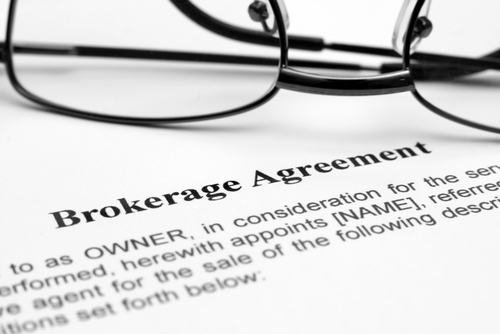While you are setting aside money for retirement, make sure that you’re not paying too much for brokerage fees. You should be commended for saving money for your golden years; however, you don’t want to find out that you’ve been paying much more in financial advisor fees than necessary. The fact is, saving money costs money. Commissions and asset-based fees are the two main ways a person can pay their investment professional.
Commissions
Commissions, or sales charges, are the most common brokerage fees that mutual investors pay. When a person buys a mutual fund they often pay as much as 5.75% in commissions. Make sure you understand any commissions before you buy. Low-cost brokers often have a lower fee schedules. These fees cover the fees of the fund company, provide them some profit; cover the fees of the advisor, and provide them some profit. After the money has been invested, the investor in a mutual fund pays ongoing internal expenses (industry average is about 1% annually) as well. Many advisors are adamant that a brokerage (commission based) account is all that is necessary and nobody should have to worry about paying an advisor’s fee, their theory being buy and hold is the best way to go about saving money. Others believe that an advisory account is the better option.
Asset-Based Fees
Many advisors receive compensation for advisory services. While these types of accounts will waive the sales charges on the investments, they will charge an ongoing fee (on top of the internal expenses). The idea is that the advisor will move money around to places where it will perform better, in doing so the rate of return will be higher and cover the extra fees. Every investment firm is different in how much they charge, but these accounts often average a 1% annual fee depending on the amount of assets under management.
There is no wrong way to go about investing. And unfortunately these fees can rarely be avoided. However, there are some tips on how to get minimize them.
No load funds are also available. These funds are generally index funds. They have no active management, low internal expenses, but often do not perform as well as those that have money managers constantly watching over them .
A person who is only investing for a short period of time (1 to 5 years) should look at C shares. These shares will not have an upfront sales charge, but they will charge a higher ongoing internal expense. For an investment that will only be held for two or three years, a person can save considerably.
For those with a larger amount of assets (perhaps coming in all at once from an inheritance) would do well to invest a lot all at one. In doing so, they will meet the mutual fund break points. At each break point the sales charge drops, so investing a considerable sum right away can end up saving thousands of dollars.
Fee based accounts can rarely have the fee waived. In fact, often the advisor can often only discount the fee by paying the difference out of pocket. The best way to find a great deal on an advisory account is to find a trusted advisor in your area.
Saving for retirement is important. Unfortunately there really is no way to truly get around or negotiate your way out of all the brokerage fees. The important thing is to save consistently and minimize the fees you pay.
While you are setting aside money for retirement, make sure that you’re not paying too much for brokerage fees. You should be commended for saving money for your golden years; however, you don’t want to find out that you’ve been paying much more in financial advisor fees than necessary. The fact is, saving money costs money. Commissions and asset-based fees are the two main ways a person can pay their investment professional.
Commissions
Commissions, or sales charges, are the most common brokerage fees that mutual investors pay. When a person buys a mutual fund they often pay as much as 5.75% in commissions. Make sure you understand any commissions before you buy. Low-cost brokers often have a lower fee schedules. These fees cover the fees of the fund company, provide them some profit; cover the fees of the advisor, and provide them some profit. After the money has been invested, the investor in a mutual fund pays ongoing internal expenses (industry average is about 1% annually) as well. Many advisors are adamant that a brokerage (commission based) account is all that is necessary and nobody should have to worry about paying an advisor’s fee, their theory being buy and hold is the best way to go about saving money. Others believe that an advisory account is the better option.
Asset-Based Fees
Many advisors receive compensation for advisory services. While these types of accounts will waive the sales charges on the investments, they will charge an ongoing fee (on top of the internal expenses). The idea is that the advisor will move money around to places where it will perform better, in doing so the rate of return will be higher and cover the extra fees. Every investment firm is different in how much they charge, but these accounts often average a 1% annual fee depending on the amount of assets under management.
There is no wrong way to go about investing. And unfortunately these fees can rarely be avoided. However, there are some tips on how to get minimize them.
No load funds are also available. These funds are generally index funds. They have no active management, low internal expenses, but often do not perform as well as those that have money managers constantly watching over them .
A person who is only investing for a short period of time (1 to 5 years) should look at C shares. These shares will not have an upfront sales charge, but they will charge a higher ongoing internal expense. For an investment that will only be held for two or three years, a person can save considerably.
For those with a larger amount of assets (perhaps coming in all at once from an inheritance) would do well to invest a lot all at one. In doing so, they will meet the mutual fund break points. At each break point the sales charge drops, so investing a considerable sum right away can end up saving thousands of dollars.
Fee based accounts can rarely have the fee waived. In fact, often the advisor can often only discount the fee by paying the difference out of pocket. The best way to find a great deal on an advisory account is to find a trusted advisor in your area.
Saving for retirement is important. Unfortunately there really is no way to truly get around or negotiate your way out of all the brokerage fees. The important thing is to save consistently and minimize the fees you pay.







